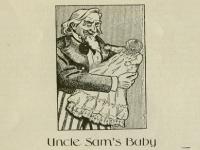Join us for a lively debate between two historians who take opposing views on the need for thrift in America today. Princeton historian Sheldon Garon, author of Beyond Our Means: Why America Spends While the World Saves, and Rutgers historian James Livingston, author of Against Thrift: Why Consumer Culture Is Good for the Economy, the Environment and Your Soul, will argue their respective cases for and against thrift.
Ever since the economist John Maynard Keynes famously contended that thrift was good for individuals but bad for the economy, scholars have argued over savings policy and its role in the national economy. This debate has fresh relevance today as Americans struggle to get out of debt and as the nation struggles to speed its sluggish economic recovery. Should we encourage and reward greater savings or should we encourage and reward more spending? Is prosperity for the middle class achieved through a culture of thrift or through a culture of consumption? The conversation promises to challenge thinking about our own saving and spending behavior and about the institutions that shape our behavior.
The conversation will be moderated by David Blankenhorn, president of the Institute for American Values and co-host of the Summer Institute on Thrift Education. A reception will precede the event at 6:30 p.m.
About the Speakers
James Livingston teaches history at Rutgers University and has written on the Federal Reserve and the Little Mermaid with equal earnestness but very different results. His heroes are Nietzsche, Freud, and Gramsci. Hegel and Marx were just the beginning.
Sheldon Garon is the Nissan Professor of History and East Asian Studies at Princeton University. A specialist in modern Japanese history, he also writes transnational history that spotlights the flow of ideas and institutions among the U.S., Japan, and European and Asian countries. His new book, Beyond Our Means: Why America Spends While the World Saves (Princeton University Press), examines what Americans might learn from European and East Asian nations whose public policies have vigorously encouraged citizens to save. The book has received media attention from NPR, BBC, New York Times, The Guardian, Financial Times Deutschland, The Australian, and many other newspapers around the world. Previous publications include The State and Labor in Modern Japan, Molding Japanese Minds: The State in Everyday Life, and the co-edited volume, The Ambivalent Consumer: Questioning Consumption in East Asia and the West.
About the Moderator
David Blankenhorn is founder and president of the Institute for American Values, a nonpartisan organization devoted to strengthening families and civil society in the U.S. and the world. Blankenhorn is the author of Fatherless America (1995), The Future of Marriage (2007), and Thrift: A Cyclopedia (2008) and the co-editor of eight volumes, including Franklin’s Thrift: The Lost History of an American Virtue (2009). A frequent lecturer, Blankenhorn’s articles have appeared in scores of publications, including the New York Times, the Washington Post, the Los Angeles Times, USA Today, The Public Interest, First Things, and Christianity Today.

